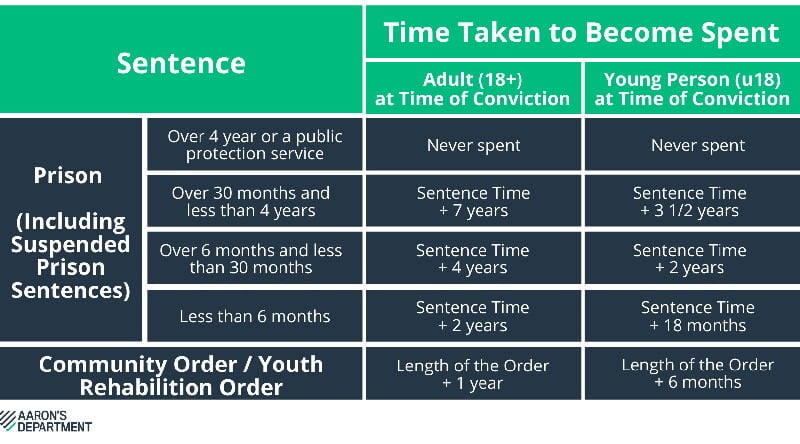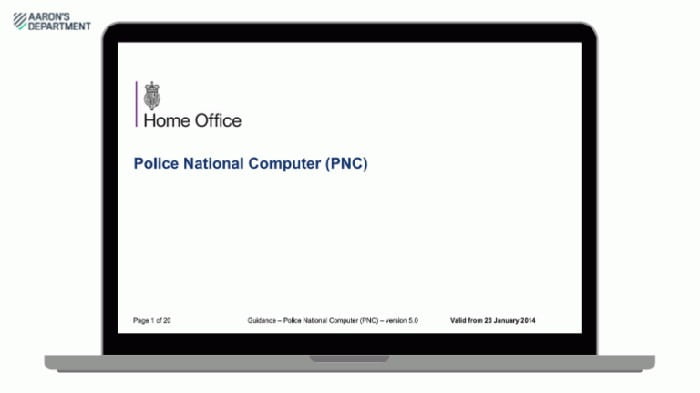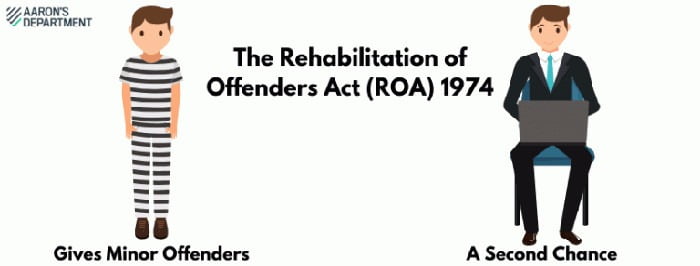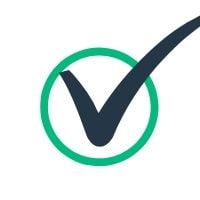What is a Basic DBS Check?
In England and Wales, a Basic DBS check contains a filtered list of convictions and conditional cautions from the Police National Computer (PNC) that are considered unspent under the Rehabilitation of Offenders Act (ROA) 1974.
When requested, the applicant will receive the certificate of the check in the form of a Basic DBS Certificate through the post. On top of this, employers will be able to see whether the certificate has come back clear or not.
Formally known as a Basic CRB check, employers can use this information to help make a safe recruitment/suitability decision.
How To Apply for a Basic DBS Check
Any individual, employer, organisation, or charity can apply for a Basic DBS/CRB check (with the applicants’ permission) and can be requested for any purpose for someone working or living in England and Wales.
For example, an organisation may want to request one to see any unspent convictions that the candidate/employee has, to ensure they can make a well-informed decision on who they employ.
If the role which will be carried out involves working with vulnerable adults or children, a Standard or Enhanced DBS check will need to be applied for.
To apply for Basic DBS/CRB checks with Aaron’s Department, register your organisation below:
The 5 Step Process To Your Basic DBS Application
With our online DBS system, getting a Basic Disclosure has never been easier!
*(If any errors are identified by our countersignatories, you will be quickly notified so amendments can be made.)
Please Note:
At Aaron’s Department, we do not offer a Basic check for individuals, and any service aimed at individuals is just a form checking service, offering little value, and you will still have to go through the Government’s verify service.
It will be slower than going directly, and some services will charge you a ridiculous amount of money for doing so little.
We strongly suggest that any individuals reading the contents of this page go directly to the UK Government’s website for a Basic check.
What Documents Are Needed For A Basic Disclosure Check?
The documents needed for a Basic DBS check depends on two things: which country the applicant is from, and what documents they actually have available.
Some of the more common documents used for CRB checks are:
– Passport.
– UK Driving Licence.
– Birth Certificate.
If you want to read more about the documents needed for any Disclosure check, we have written an Application Guide.
Can I Apply for a DBS Check if I Don’t Have The Required Documents?
No. You cannot apply for any level of DBS check (Basic, Standard, or Enhanced) if you do not have all the necessary personal information.
What Shows Up On A Basic DBS Check?
A Basic DBS Certificate contains all unspent convictions, final warnings, and reprimands from the Police National Computer (PNC).
What is an Unspent Conviction?
Unspent convictions are all those sentences in which the period after which the sentence can be effectively ignored hasn’t passed yet. After this period, also known as the “rehabilitation period”, passes the conviction is considered spent and isn’t included in a Basic disclosure.
Some convictions will never become spent, and they can be found on the Government’s website.
Below is a more detailed description of how long it takes convictions to become spent.

What Are Conditional Cautions?
A conditional caution is issued if the offender has admitted the offence they have done, and has accepted the conditions which are a consequence of their offence. A timescale is determined, during which, if the offender breaks the conditions they have agreed on, then prosecution might follow. If the offender doesn’t break the conditions in the given timescale, then the case is finalised, and there is no prosecution.
What is the Police National Computer (PNC)?
The PNC is a large-scale computer database system that stores information of both national and local significance. Linked to the Schengen Information System (SIS II), which encompasses most of Europe, the PNC provides an essential service to the police, the UK Law Enforcement and criminal justice agencies in the UK.
The PNC is used to enter and view information on properties, vehicles, people, and offences.

What Is the Rehabilitation of Offenders Act (ROA) 1974?
The Rehabilitation of Offenders Act (ROA) 1974 and reformed on the 10th March 2014 aims to rehabilitate offenders who have not been convicted of a serious offence. It applies for periods after which convictions or cautions are regarded for most purposes as spent. Offenders with spent convictions and cautions have the right not to disclose them when applying for most jobs, or when buying insurance.

The Basic DBS Check Is Now Available Directly Through the Disclosure and Barring Service
As of 1st January 2018, Basic UK DBS checks for any organisation whose candidates are living/working, or have previously lived or worked in England and Wales should be processed through the Disclosure and Barring Service (the DBS).
Companies or organisations must use a Registered Body (like Aaron’s Department), and have permission to apply for a DBS check from the candidate. Only a Registered Body can apply for DBS checks for organisations and employers.
How Can a Basic DBS Certificate be Used?
Some examples include:
Basic DBS Check Criteria
For an organisation to apply for an individual’s Basic DBS check, they must:

1. Currently or previously lived or worked in the United Kingdom

2. Be at least sixteen years old

3. Have granted them permission to apply for a check in their name
What Information Do You Need for a Basic DBS Check?
To apply for a dbs check for an employee, or another person, you will need the candidate’s:
- Current and any previous full names.
- Date and place of birth.
- Identification Documents.
- Five-year address history.
- National Insurance number (if the candidate has one).
- Written consent, giving you the right to process the application on their behalf.
How Does the ID Checking Process Work?
If you are an organisation applying for a person’s Basic disclosure, you need to check their ID documents (ID card, Passport, Driving Licence etc.). Our system lets you know which combinations are acceptable ensuring that you don’t break the rules.
Individuals applying for a Basic check through the Disclosure and Barring Service need to use an ID checking service such as the Post Office ID checking Service and provide confirmation that the ID checking was performed. Read more about the DBS ID checking guidelines.
The Basic DBS Check Process
As the lowest level of check, the Basic DBS only goes through three stages (compared to the five Enhanced DBS Check stages).
STAGE ONE
The application is received and validated by the DBS. Any errors and/or empty fields are checked. Once this is done, the application is entered into the DBS system or, if required, returned to the counter-signatory to be corrected.
STAGE TWO
The Basic DBS check is approved and the applicant will now be checked against the Police National Computer (PNC) for any relevant information.
STAGE THREE
The certificate is printed, and is only sent to the individual that has been checked by the DBS.
How Long Does a Basic DBS Certificate Last?
As with all DBS checks, there is no expiry date. It should just be remembered that the certificate is only a snapshot of the individual at the time of the check being requested. The DBS check will not be updated, until a new one is requested.
The employer/organisation must decide on their own DBS renewal policy and some authorities suggest a new check should be carried out every 3 years, or when the individual changes jobs.
Error Free Online Application
The DBS service rejects all requests that are not filled correctly or miss information that is essential for the check. This causes frustrating delays. With our automatic checking process, there’s nothing to worry about! The application process is error-proof. You are notified of and can correct errors at each stage of an application. This makes sure that you get the DBS check quickly without experiencing unnecessary delays.
How Can People Use the Basic DBS Certificate?
- For a current job, new job, or volunteer work
- Additional credibility when applying for a position
- Visa application for UK residents
- Self-employed people can use the certificate to increase customer confidence
- Vetting people who are looking for accommodation
- For any other purpose
Who Receives the DBS Certificate?
The Certificate is sent directly to the applicant which filled in the application.
It is up to the applicant to decide who can see their Certificate. Using the Aaron’s Department system, they can allow a Nominated Signatory to view the results of their DBS check as soon as they are available and without waiting for a printed certificate. In the case when criminal information is found on the PNC, then the permission to view the outcome of the check electronically is withdrawn automatically, and the organisation has to wait for the applicant to provide the paper certificate.
As of 2013, to ensure the applicant is protected against errors and to guarantee the right of the applicant to decide who they show the information to, both paper and online DBS Certificates are issued to the applicant only.
What Is The Difference Between a Basic and Standard DBS Check?
A Basic DBS check will only display an individual’s unspent convictions, final warnings and reprimands, whereas a Standard DBS check will also show spent convictions an individual may have.
Only an employer or organisation can apply for a Standard DBS check, whereas anyone can apply for a Basic DBS check.
What Is A Basic CRB Check?
A Basic CRB check contains a filtered list of convictions and conditional cautions from the Police National Computer (PNC) that are considered unspent under the Rehabilitation of Offenders Act (ROA) 1974.
Previously when requested, the applicant would receive the details of the check in the form of a Basic CRB Certificate through the post. These CRB checks have now been taken over by the Disclosure and Barring Service (DBS) Checks.
Why Aaron’s Department Is Your Organisation’s Best Choice for Doing Basic DBS Checks?
We are connected directly to the UK Government, so we can assure you that the DBS check will be processed fast, and the Basic Certificate will be returned promptly.This is the fastest and easiest way to request a DBS check. When using a Registered Body, you don’t have to wait for ID checking procedures which can take a significant amount of time.Register with Aaron’s Department today, it is fast, free, and you can sign up and start getting your first Basic DBS results within hours.
How Much Does A Basic DBS Check Cost (UK)?
At Aaron’s Department, you can receive a Basic DBS Check on an individual for as little as £18 (the standard Government fee), plus an admin fee from £2.83!
Low Price Basic DBS Check for Organisations!
For organisations, we offer low price Basic checks. Unlike many companies which offer to do cheap DBS checks and load their prices with annual fees and subscription plans, at Aaron’s Department we do not do this. Our DBS fees are simple, easy to understand and there are no hidden costs.
Additional free credits are given, depending on the number of checks that your organisation pays for in advance.
To apply for a basic DBS check, you can sign up now for free, and start using our quick and easy service which is backed up by our fantastic support!
Basic DBS Check for the Self-Employed
Someone who is self-employed can only obtain a basic check as an individual, and this will show all unspent convictions. The eligibility for this check is not restricted by any job role and is available to everyone. More information on this is available on our DBS Checks for self-employed page.
